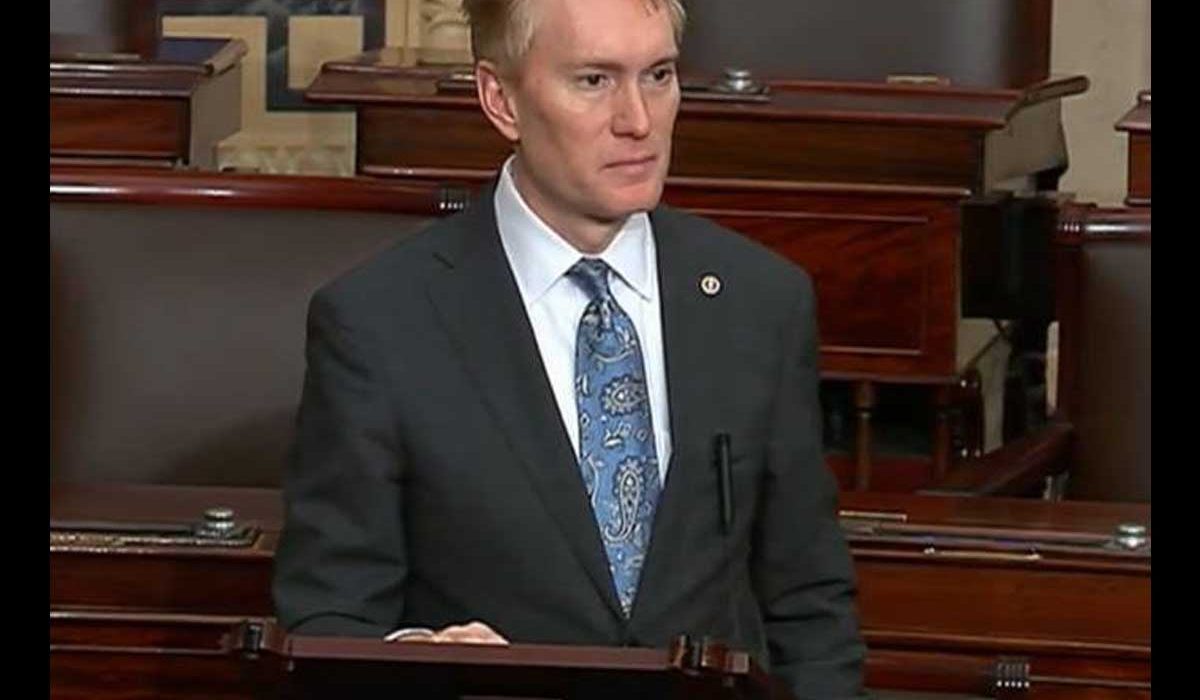Release
WASHINGTON, D.C. – Senator James Lankford (R-OK) announced continued pro-life protections in the Health, Education, Labor, and Pensions and Related Agencies spending, bill released this week by the Senate Appropriations Committee, on which Lankford serves. Lankford helped secure health-related advancements in Alzheimer’s research and rural health services as well as clarity for Oklahoma’s rural school systems and for Historically Black Colleges and Universities (HBCUs).
“While the coronavirus pandemic continues, we must also continue to focus on the ongoing needs of our health and education systems in Oklahoma, which I believe this bill works toward,” Lankford said. “I am pleased this bill contains a number of long-standing, pro-life policy provisions to protect American taxpayers from being forced to pay for abortion and abortion-related services that violate their religious or moral beliefs. I am grateful for the ongoing attention to the Social Security Disability backlog and attention to the Rural Low-Income Schools program that we continue to work to maintain for our rural schools. As we work through the federal spending process, I am hopeful we will achieve a positive final product in the next few weeks.”
This bill maintains the existing important pro-life provisions including:
·:
· $1.7 billion for Federally Qualified Health Centers (FQHCs), including Community Health Centers (CHCs) and encourages the Centers for Medicare and Medicaid Services (CMS) to allow FQHCs to directly bill Medicare Part B for vaccine administration
· $43.6 billion for National Institutes of Health (NIH), including:
o $354 million increase for Alzheimer’s research, which will provide an overall $.3.1 billion for Alzheimer’s disease and dementia research in fiscal year 2021
o $518 million for the End HIV initiative
o $3.9 billion for ending the opioid crisis
o $4 billion for mental health programs
o $52 million for the State Health Insurance Program
o $299 million for the Hospital Preparedness Program
o $310 million to improve the effectiveness of the flu vaccine and better respond to late changes to flu strains during the pandemic
o $785 million on Project BioShield to purchase critical medical countermeasures, such as vaccines, therapeutics, and diagnostics
o $705 million on the Centers for Disease Control and Prevention’s (CDC) Public Health Emergency and Hospital Preparedness program to continue preparing communities and hospitals to respond to public health emergencies like the COVID-19 pandemic
o $5.8 billion for the Child Care and Development Block Grant program with $53 billion for the Child Care Access Means Parents in School program that provides grants to institutions of higher education for campus-based child care programs
The bill secures $73.2 billion in funding and several important policy provisions to the Department of Education, including
· Priority for formula grants that provide the most flexibility for states and school districts to decide how to best use limited resources to meet the educational needs of students and families
· $1.3 billion for Career and Technical Education State Grants
· An increase in the maximum Pell grant award by $150 to $6,495 for the 2021-2022 academic year
· A $21 million increase for programs to strengthen Historically Black Colleges and Universities and other Minority Servicing Institutions
· $1.8 billion to support the administration of federal student aid programs and continue efforts to improve the quality of service to students and borrowers, including simplifying and streamlining the FAFSA process and student borrower experience
· Rural and Low-Income Schools (RLIS) program changes and updates to the notification process to school districts, following the introduction of Lankford’s bill to support RLIS funding earlier this year and a hearing in which he questioned Education Secretary DeVos on the program’s impact on Oklahoma schools
· $5.8 billion for the Child Care and Development Block Grant program with $53 million for the Child Care Access Means Parents in School program that provides grants to institutions of higher education for campus-based child care programs
A key area under the Department of Labor that Lankford helped secure includes $195 million for apprenticeships, with $10 million reserved for President Donald Trump’s Industry-Recognized Apprenticeship Program to allow industry groups to oversee apprenticeships.
Additionally, this bill includes provisions to help address the Social Security Disability Insurance (SSDI) claims backlog, a move Lankford has worked on since first beginning to serve Oklahoma in the House of Representatives in 2011. Lankford also pushed for language that strongly encourages the Social Security Administration (SSA} to work with Administrative Law Judges (ALJs) to evaluate and implement changes to improve the efficiency of the disability adjudication process. Lankford also secured progress in modernizing the medical-vocational “grid” used to determine disability status to ensure that only individuals who are truly disabled can receive SSDI benefits. In addition to the Appropriations Committee, Lankford also serves on the Senate Finance Committee, which also has jurisdiction over Social Security and the Centers for Medicare and Medicaid Services (CMS).


